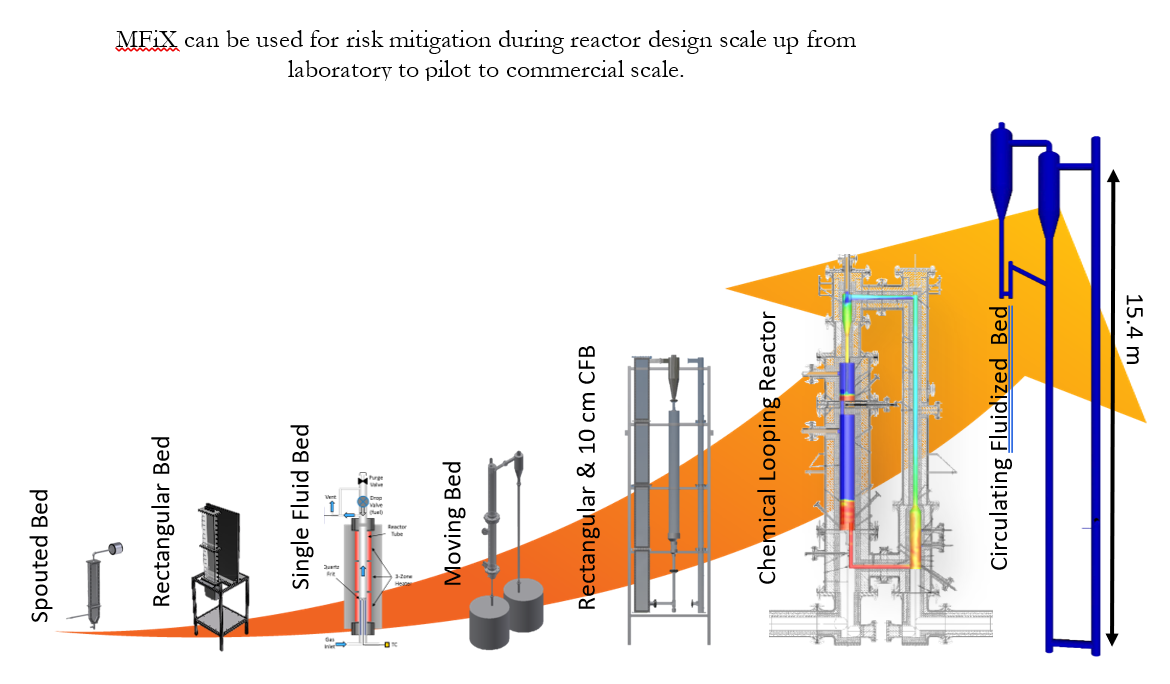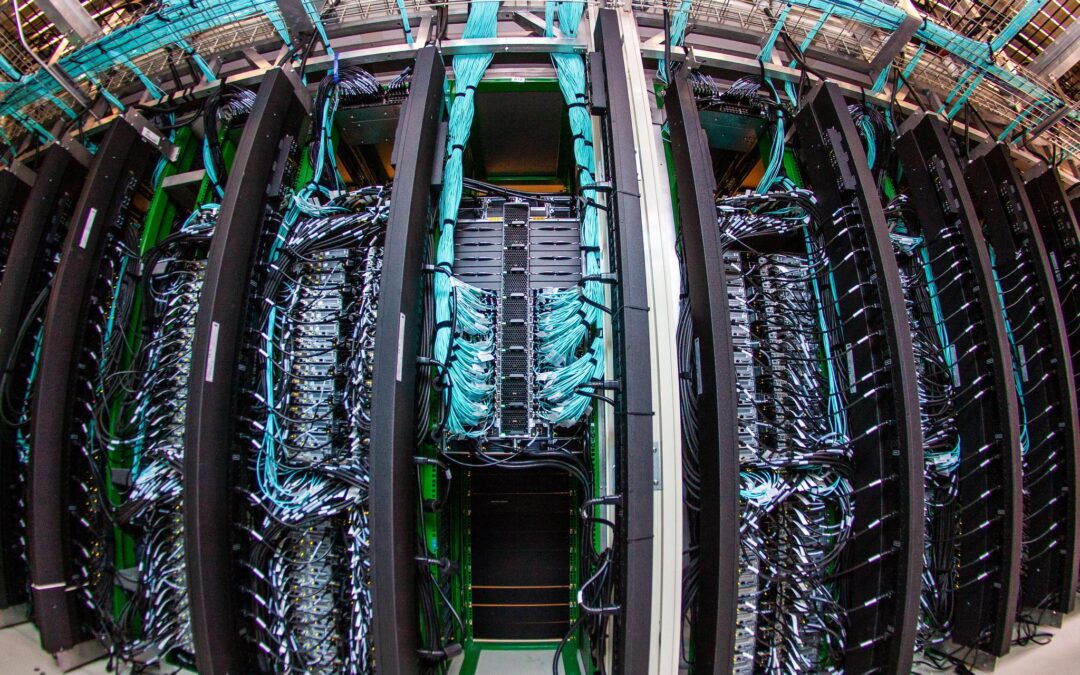Through the development, validation and application of a suite of multiphase flow tools, NETL has established itself as a leader in applying high-performance computing (HPC) to computationally demanding multiphase flow problems — research that is critical for designing next-generation energy systems that will meet the nation’s decarbonization goals.
NETL’s suite of multiphase computational fluid dynamics (CFD) software includes Multiphase Flow with Interphase eXchanges (MFiX) and its exa-scale offering (MFIX-Exa). This software is central to NETL’s multiphase flow reactor modeling effort, which enables scientific exploration, design, optimization and scale-up of multiphase systems. This capability places NETL at the forefront of high-performance and extreme-scale computing and provides the Lab with a crucial tool to help drive breakthroughs in engineering that support U.S. economic competitiveness, national security and scientific discovery.
NETL’s HPC system, Joule, provides state-of-the-art computing power for computationally intensive multiphase flow simulations, along with advanced visualization tools for post-processing and data analysis, as demonstrated with some of the recent accomplishments:
- Simulated the flow dynamics and interactions of more than 150 million particles, which allowed the MFiX team to discover the physical mechanism involved in the growth of granular jets forming upon the impact of a heavy intruder on a bed of fine particles. This has the benefits of both validating the MFiX multiphase flow code and advancing the understanding of physical phenomena observed in nature and industrial energy systems.
- Applied MFiX to demonstrate fast pyrolysis and gasification of low-cost, complex biomass and waste feedstocks for the production of sustainable aviation fuels and related co-products.
- Harnessed exa-scale HPC. MFIX-Exa simulations captured particle-level details of a pilot-scale chemical looping energy reactor. Software advancements initiated by the Exa-scale Computing Project (ECP) leverage heterogeneous architectures of modern high-performance computers.

The MFiX software is backed by more than three decades of development history and has more than 8,000 registered users, making it one of the leading CFD codes for gas-solid flow modeling. Model development and refinement are achieved through in-house research together with external partnerships to harness cutting-edge CFD expertise across the country.
The success of these MFiX and other energy-related NETL supercomputing projects set the stage for the next generation of the Joule supercomputer that will be unveiled later this year. The third iteration of Joule will enable additional and more complex projects to be tackled by NETL researchers that will drive innovation and deliver solutions for an environmentally sustainable and prosperous energy future.
NETL is a DOE national laboratory that drives innovation and delivers technological solutions for an environmentally sustainable and prosperous energy future. By using its world-class talent and research facilities, NETL is ensuring affordable, abundant, and reliable energy that drives a robust economy and enhances national security. Simultaneously, NETL is developing technologies to manage carbon across the full life cycle, enabling environmental sustainability for all Americans.


